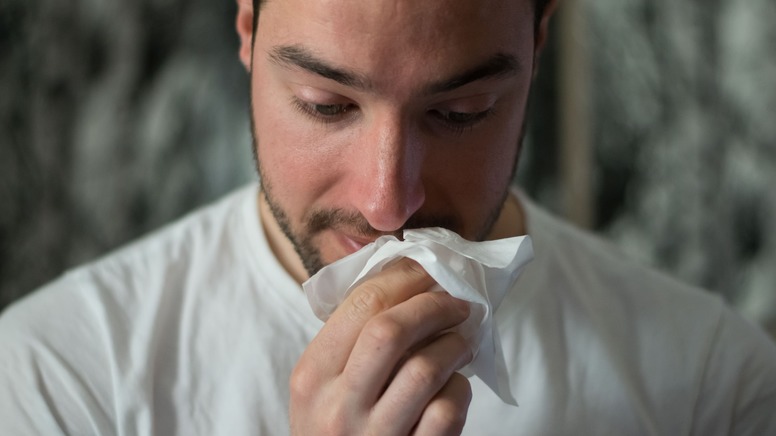Has your union representative made a difference for you and your colleagues? Then you can say thank you by nominating them for the Union Representative of the Year award.
News
One in three works from home even if they are ill

An unhealthy side effect of the limitless working life has emerged after the shutdowns of recent years and long periods of working from home. In a new IDA survey of 1,755 members, 35% say they have worked from home one or more times in the past three months when they were ill.
Malene Matthison-Hansen, chair of IDA’s Council of Employees, describes the figures as shocking.
"We have been very focused on keeping the positive aspects of working from home during the corona closures, such as increased flexibility and better opportunities for working from home. Now we see one of the downsides of homeworking that we need to get rid of as soon as possible. There are no grey areas. If you are unwell, you must call in sick, and I would urge everyone to do so," she says.
She also urges managers and employers to be much more outreaching and make it clear that, of course, you shouldn't work if you're sick. Even if you are busy. In general, it's about creating clear expectations about the way tasks are carried out.
"It puts a strain on us and causes us to become stressed when there are no clear expectations. And it creates a great deal of insecurity for the individual if you are unsure whether you are doing your job well enough. Therefore, it can be difficult to keep the computer turned off, even if you are ill," says Malene Matthison-Hansen.
One in five members is stressed
Malene Matthison-Hansen points out that IDA members are more affected by stress and dissatisfaction than the national average. The latest figures from the Danish Working Environment Authority, Arbejdstilsynet, show that 14.4% of working Danes feel stressed all the time or often. Among IDA members 21 per cent feel stressed all the time or often.
"A lot of members run extra fast and work hard for their employer, partly because there is a lack of colleagues in many workplaces. But these figures are appalling. When so many people work from home, even though they are unwell, it can help create a culture where it is difficult to take time off and to be ill when you are ill. Recovery is important both during illness and after a busy working day. That is why it is so important that we reverse and stop this development, because it is directly counterproductive in terms of creating a healthy and sustainable working life," says Malene Matthison-Hansen.
Identity and work are linked
Eva Jakobsen, a work life consultant at IDA, says the issue is familiar, although it has changed with homeworking.
"Before corona, there was status in coming to work, even if you coughed and harked. Now we have learned that we must stay at home so that we do not infect others, but the underlying problem is the same. For many, identity and work are so closely linked that they cannot put it down, or they feel that it is a sign of weakness to call in sick," says Eva Jakobsen.
"Illness is legal absence, which means that you as an employee have the right to be sick until you are well again - but in IDA's latest study on stress, we can see that the members have a very large responsibility for that the tasks are solved, and thus the dilemma arises, should I take care of myself or solve my tasks?"
She points out that you should call in sick and not work, for your own sake and for the sake of the workplace.
"When you don't give yourself time to recover, it takes longer to get well, and it affects you cognitively, so you solve your tasks worse. Therefore, your duty towards your employer is, so to speak, to focus on getting well so that you can work again”.
She believes that the most important thing is to talk about expectations in the workplace when it comes to illness, so that a culture is created where people don't actually work when they should be focusing on getting well. And if you have doubts about whether you are too ill to work, her best advice is to try to see the situation from the outside.
"Ask yourself what you would say to your friend or partner if they felt like you. We often have unrealistic expectations of ourselves that we couldn't bring ourselves to put on others. If you wouldn't advise your friend to work when coming down with the flu, don't do it yourself."